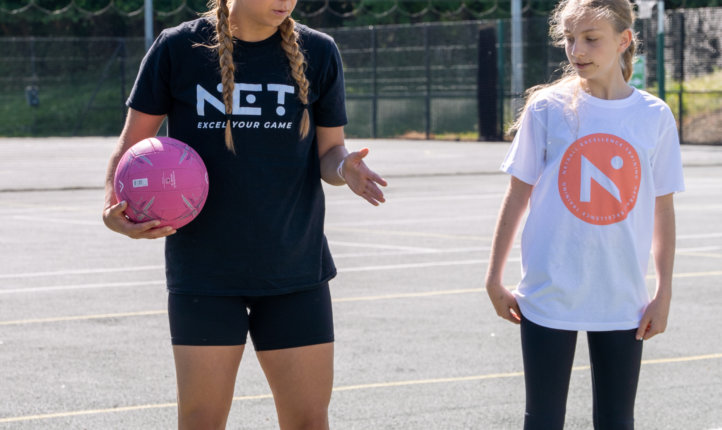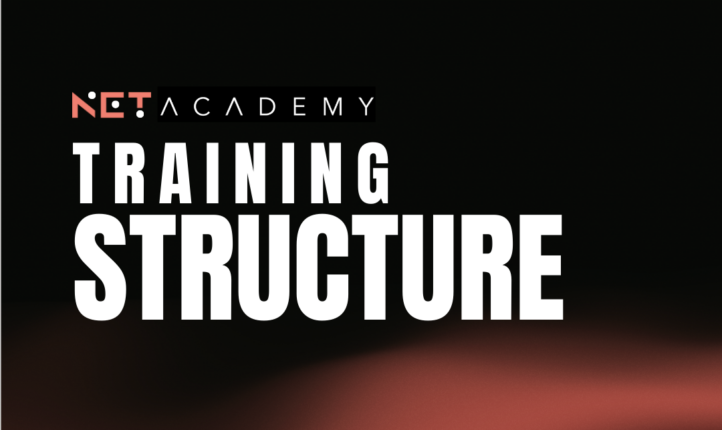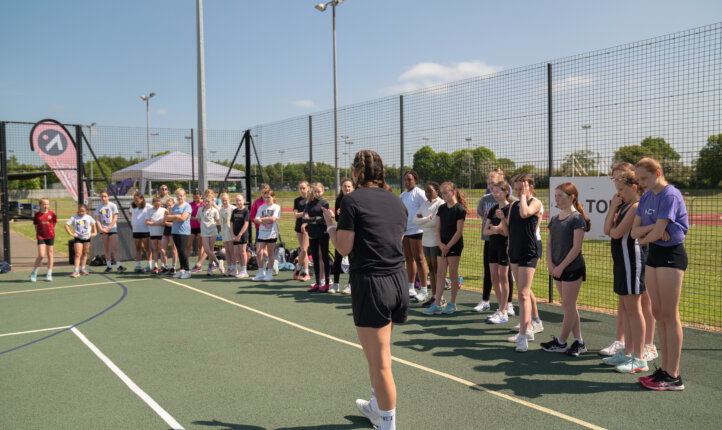February 27, 2024
How focusing on the 1% can excel performance and make great teams excellent
Written by Jenni Monger | Level 2 Netball Coach, NET Founder
It can be really easy to get caught up in the ‘big picture’ of netball. Focusing on the team’s overall performance, deciding your set plays, knowing what combination works best on court, analysing opposition and coming up with the best game plan….the list is endless. But, if you really want to build to a successful performance, you need to start looking at the 1%: the things that individual athletes can do to help them raise their own performance. These changes will eventually become what allows players to develop the speed to chase that loose ball, gain the footwork to move around their player and confuse the pass, build the strength to jump that little bit higher for their rebound. It’s the 1% that makes good teams great…but how do we get there?
Creating accountable athletes
The first step to improving the 1% is making sure that your athletes are accountable for their own performance both on and off the court. If you really want to reach that next level, turning up to training and matches will not cut it. They need to understand that dedicating time to do just 15 minutes of specific work a week will help them to level up.
So as coaches, how can we support this?
Players need it easy, especially youth players who have school commitments, studies and multiple sports to juggle. They need to have clear goals and clear plans to follow to help take out the guess work from their training. They also need to buy into the ‘extra work’ you are asking them to do. They need to see that it’s relevant, it’s necessary, it’s ‘fun’ and that it will help them to get to the next step!
Within our academies we spend a lot of time on goal setting. Our players are asked to reflect on their current game and performance and write down some things they feel they would like to get better at across the season. This can be done at home and shared with coaches via an online link to prevent time being taken away form training. This is a great stepping stone for coaches to have conversations with players about their performance and the little things that could do to be better. Players feel they have had an input into their own foal setting and therefore feel more empowered and motivated that they themselves can make a change. Out of these conversations, coaches will then set ONE specific, measurable goal for each player to work on over the next 3 months. This is the first step.
It’s a 5 minute conversation 1:1 with a player, but it sets the ball in motion for their ‘home-training’ and making them accountable for their own success.
Encouraging individual reflection
Once players have their specific goal to work on, it is then down to them to make sure they put in the extra work to achieve it. This is the 1% extra that they can do to help them to excel their own performance on court.
I personally believe that players need to ‘plan’ their training into their week and reflect on their sessions so that they can track their own improvements. For example, completing the same footwork pattern every week for 4 weeks might become boring, seem pointless and players may start to feel that it is making no difference to their overall performance. However if they are in a habit of reflecting on every game and training practice that they also complete over that same 4 weeks, and in those reflections they notice that they are winning more ball (perhaps from stats that have been taken), or they are feeling fitter during their quarters (they are writing that they are less tired), or that they are getting more court time (they are commenting that they played a whole game for the first time), players will be able to see the positive impact the extra training may be having on their performance, even if it’s not obvious from the outset.
Success is not linear
On reviewing their reflections over a period of time, players will be able to notice positive change and impact in their performance even if this is not obvious from the outset. Success is not linear, and this is the number 1 thing athletes need to understand. They will not be able to complete one training session, analyse one video, finish one sprint session and be better. They might even have games, weeks or practice, that they feel like they are getting nowhere – and this is all part of the journey.
By reflecting and physically writing down these achievements and feelings, players can start to make the first steps in improving their game and therefore working on the 1% that will take them and their team from good to great to excellent.
The key to improving the 1% is showing up! No matter how small the effort, it’s the days you put in something when you feel you have nothing to give that make the difference!
OUR TRAINING JOURNAL
I created the Athlete Journal with exactly this in mind. I wanted to make it easy for athletes to plan, set goals and reflect on their matchplay and training to help them to improve their 1% and reach excellence.
The 20 week journal has designated spaces for refection, goal setting and planning your week to help take out the guess work and make organising yourself as a busy athlete so much easier. As well as this, it has advice on warming up, stretching, 5 minute practices for mindset and confidence building as well as lots of space to write down practices, notes, coaches comments and anything else athletes need to help improve their performance.
I’ve worked in a number of performance environments, and the athletes that truly improve are those who think critically about their own game, reflect and set the specific goals and targets to improve. If you truly want to achieve excellence, it’s about continuously putting in the work, finding the 1% and not stopping until you get there!
Our journals are available on Amazon with worldwide shipping, follow the link to purchase!
Have you enjoyed this article?
Share it on Socials
@netballexcellencetraining











